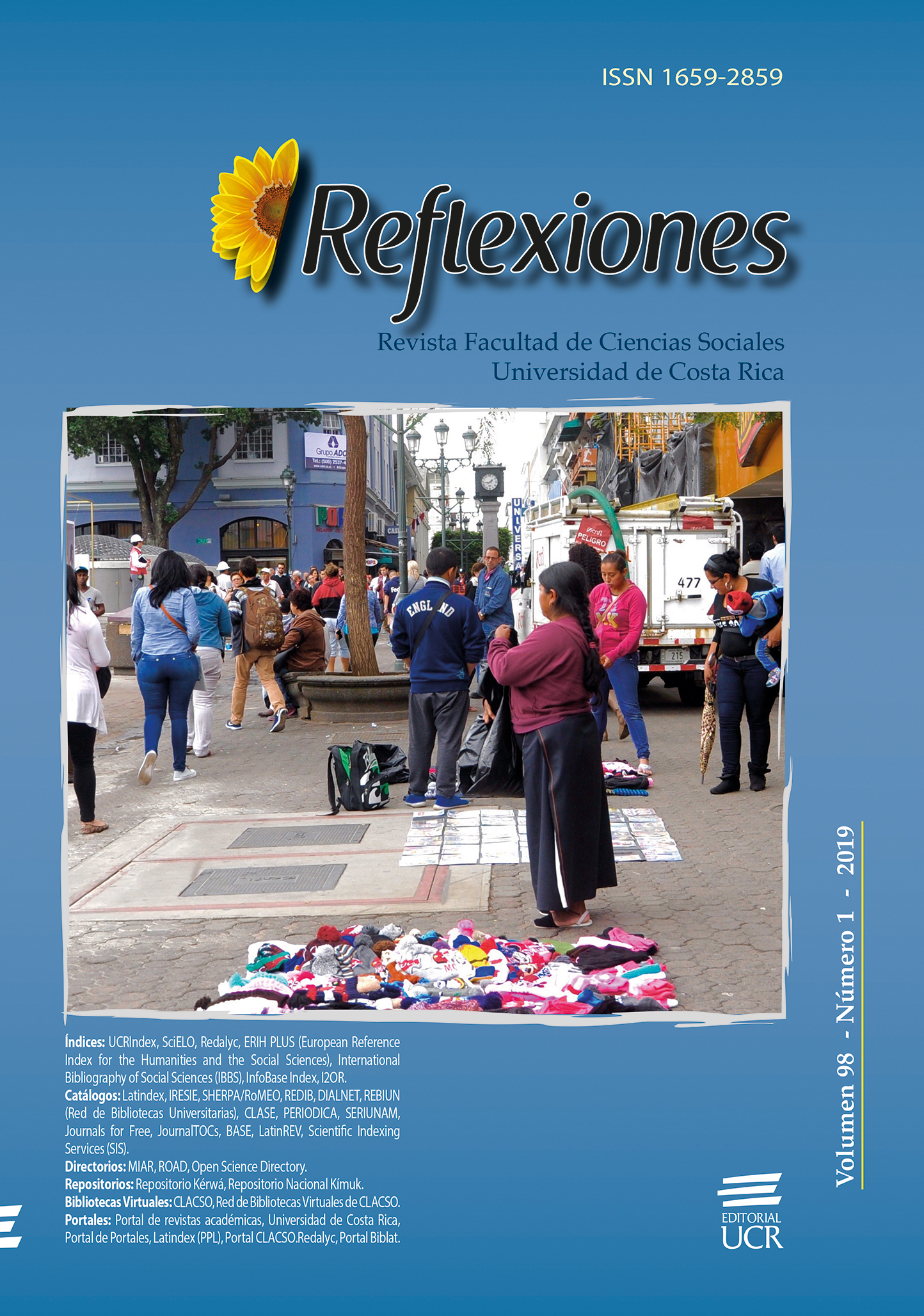Abstract
This article reflects on the epistemic and methodological value of social intersubjectivity as the basis of any pretense of objectivity for academic-community projects with techno-scientific or engineering orientations. From a critique of the typical colonial relations between the academic world and the community, the idea of social intersubjectivity is integrated with the technological-scientific development, concluding that intersubjectivity can be used as a basis in a modified engineering design process that starts with a learning stage. The reflection is based on the experience of two years of interdisciplinary work between natural sciences and social sciences in coastal communities, in which wastewater treatment technologies were built through action research.
References
Aristizábal Hoyos Pedro Juan (2009). Intersubjetividad y comunicación. Universidad Tecnológica de Pereira Colombia. Acta fenomenológica latinoamericana. Volumen III (Actas del IV Coloquio Latinoamericano de Fenomenología) Círculo Latinoamericano de Fenomenología Lima, Pontificia Universidad Católica del Perú; Morelia (México), Universidad Michoacana de San Nicolás de Hidalgo 2009 - pp. 335-355
Bautista Segales, Juan José. (2012). Hacia la descolonización de la ciencia social Latinoamericana. Cuatro ensayos metodológicos y epistemológicos. La Paz, Bolivia: Rincón ediciones.
Castro-Gómez, Santiago y Grosfoguel, Ramón –compiladores– (2007). El giro decolonial: reflexiones para una diversidad epistémica más allá del capitalismo global. Bogotá: Siglo del Hombre Editores; Universidad Central, Instituto de Estudios Sociales Contemporáneos y Pontifi cia Universidad Javeriana, Instituto Pensar
Cho, Youngil y Kim, SuKyoung (2014). A Study on Affective Design by Subjective-Objective Co-Approach. Vol. II. Hong Kong, 2014. http://www.iaeng.org/publication/IMECS2014/IMECS2014 _pp1120-1124.pdf.
D’Olivo, Patrizia; Del Curto, Barbara; Faucheu, Jenny; Lafon, Dominique; Bassereau, Jean-François; Lê, Sebastian y Delafosse, David (2013). Sensory Metrology: when emotions and experiences contribute to Design (p. DS75–7_052). Presented at the 19th International Conference on Engineering Design (ICED13), The Design Society. Retrieved from http://hal-emse.ccsd.cnrs.fr/emse-01063182/document
Dym, Clive L.; Wesner, John W. y Winner, Langdon. (2003). Social dimensions of engineering design: Observations from mudd design workshop III. Journal of Engineering Education, 92(1), 105-107. doi:10.1002/j.2168-9830.2003.tb00746.x
Echeverría, Javier (2018). De la filosofía de la ciencia a la filosofía de las tecno-ciencias e innovaciones. Revista iberoamericana de ciencia tecnología y sociedad 10.28 (2015): 105-14.
Fanon, Frantz (1956). Racismo y cultura. En Congreso de escritores y artistas negros. París.
Garcés Fernando (2007) Las políticas del conocimiento y la colonialidad lingüística y epistémica. El giro decolonial: reflexiones para una diversidad epistémica más allá del capitalismo global. Santiago Castro-Gómez y Ramón Grosfoguel –compiladores Bogotá: Siglo del Hombre Editores; Universidad Central, Instituto de Estudios Sociales Contemporáneos y Pontificia Universidad Javeriana, Instituto Pensar
León Duarte, Jaime A.; Romero Dessens, Luis F. y Olea Miranda, Jaime (2008). Customer subjective perception as a main issue in conceptual product desing: A methodological proposal. Ingeniare. Revista Chilena De Ingeniería, 16(2), 301-309. doi:10.4067/S0718-33052008000200004
Luo, Lan; Kannan, P. K. y Ratchford, Brian T. (2008). Incorporating Subjective Characteristics in Product Design and Evaluations. Journal of Marketing Research, 45(2), 182–194.
Molinos-Senante, Maria, Garrido-Baserba, Manuel, Reif, R.; Hernández-Sancho, F. y Poch, M. (2012). Assessment of wastewater treatment plant design for small communities: Environmental and economic aspects. Science of The Total Environment. 427–428, 11–18. https://doi.org/10.1016/j.scitotenv.2012.04.023
Moriarty, G. y Julliard, Y. (2001). On subjectivity in focal engineering. Paper presented at the 177-184. doi:10.1109/ISTAS.2001.937736
Nagel, Thomas (1996). Una visión de ningún lugar. México: Fondo de Cultura Económica.
Quijano, Aníbal (2000). Colonialidad del poder y clasificación social. Journal of World-System Research, (2), 342–386.
Sebastian, Patrick; Ledoux, Y; Collignan, A y Pailhes, J. (2012). Linking objective and subjective modeling in engineering design through arc-elastic dominance. Expert Systems with Applications, 39(9), 7743–7756. https://doi.org/10.1016/j.eswa.2012.01.079
Towler, Gavin y Sinnott, Ray K. (2013). Chemical Engineering Design - Principles, Practice and Economics of Plant and Process Design (2nd Edition). Elsevier. Recuperado de: https://app.knovel.com/hotlink/toc/id:kpCEDPPEP4/chemical-engineering/chemical-engineering


